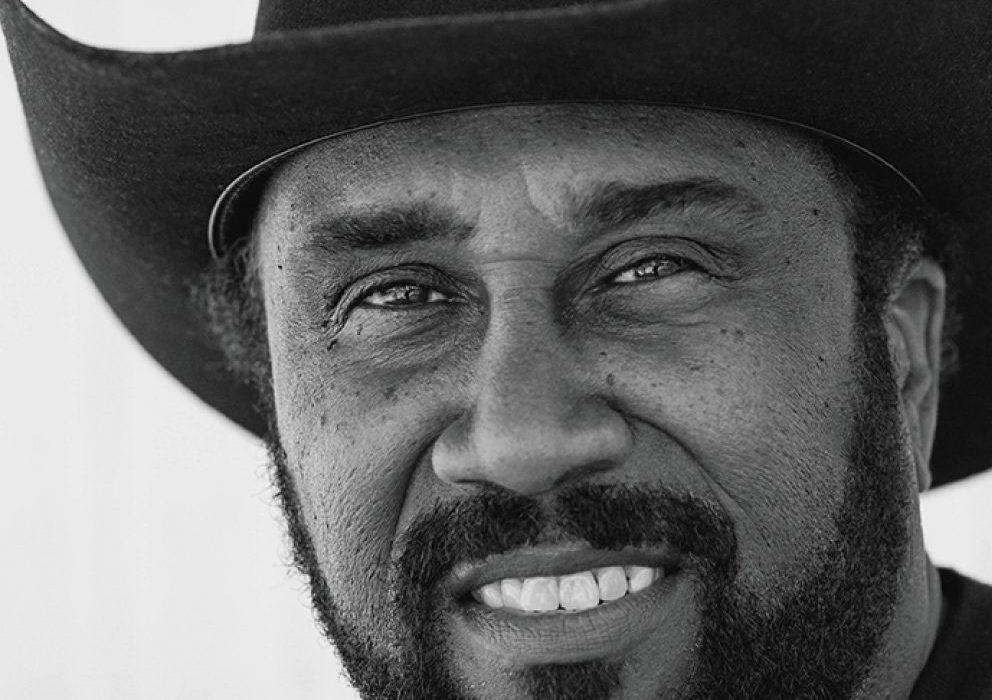“Throughout his legal and legislative journey, Dr. Boyd realized African American farmers needed a platform so their voices could be heard.”
~ Land O’Lakes statement at the National Black Farmers Association website
Born in New York City, New York on September 4, 1965, John Boyd, Jr. is a fourth generation farmer. When he was in the ninth grade, his family moved to Mecklenburg County, Virginia, to assist their loved ones on the family farm. Still maintaining his family’s land as well as his own, he grows corn, soybeans and wheat and raises cattle. He has also grown tobacco and raised chickens.
Having received his formal education at Southside Virginia Community College and Clemson University, Boyd, Jr. knew he would continue to farm. In “Farmer John Boyd Jr. Wants African-Americans To Reconnect With Farming” from All Things Considered at NPR, he shared that he grew up wanting to be a farmer, having seen both his grandfathers and father farm. Training John in being a farmer, his father taught him that land ownership was a most valuable resource.
In the interview, Boyd, Jr. shared the wisdom his father gave him, emphasizing, “The land didn’t mistreat anybody, didn’t discriminate against anybody … people [do]. But if you put down a proper limeseed and fertilizer at the right time, that you can grow just as good a crop as any man.” However, he did not know that farming would lead him to also become an organizer and civil rights activist.
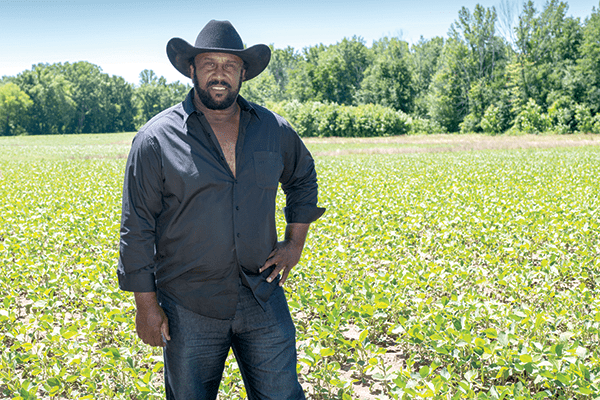
(No copyright infringement intended).
In 1983, John Boyd, Jr. bought his own farm from Russell Sally, a neighbor. It was Sally who informed him of federal programs and resources to assist local farmers as mandated by the U.S. Department of Agriculture (USDA). Optimistic and perhaps naïve, he believed the government agency, as per its outreach, would assist him with its services, which included attaining credit and farm insurance. Boyd, Jr. quickly came to experience the obvious and illegal disparity shown African-Americans. According to “The John Boyd, Jr. Story” at the website of the National Black Farmers Association, the local branch only received African-Americans one day per week, to which he said they referenced it as “Black Wednesday”. He also detailed, “Of 157 agricultural loans made in Mecklenburg County, just two were to Black farmers. Loan applications for local White farmers took 30 days to process; the same application for Black farmers took 387 days. Many Black farmers lost their land while they waited.” Boyd has also recalled an occasion of an interview where a USDA agent threw his loan application in the trash. In the duration, he ended up filing for bankruptcy.
Undeterred, John H. Boyd, Jr. trained himself to understand and apply the laws and soon began filing complaints against the local agent. After federal investigation, the agent admitted his racism and discrimination against Black farmers. He denied them, feeling they were lazy and wanted to exploit government funding. Boyd, Jr. soon started meeting with other Black farmers throughout the South, where he learned that they too had the same shared experience. His queries led him to discover that the racial discrimination, clearly documented, by thousands of agencies within the USDA stemmed as far back as the 1960s. In his biography at John Boyd, Jr.com, he reflected, “I heard some terrible things, and the further south you go, the worse the story gets … It’s tough for all farmers, but when you throw in discrimination and racism and unfair lending practices, it’s really hard for you to make it.”
He reiterated this theme in his NPR interview, revealing, “Basically it was the government discriminating against Black farmers. For not lending them money on time, for not processing their loan applications. I always said farmers are faced with acts of nature such as hurricanes, tornadoes and droughts. But you should never be faced with the actual hand of the federal government. They’re supposed to give you a lending hand up, and not a lending hand down and mistreat people the way the government mistreated Black farmers.”
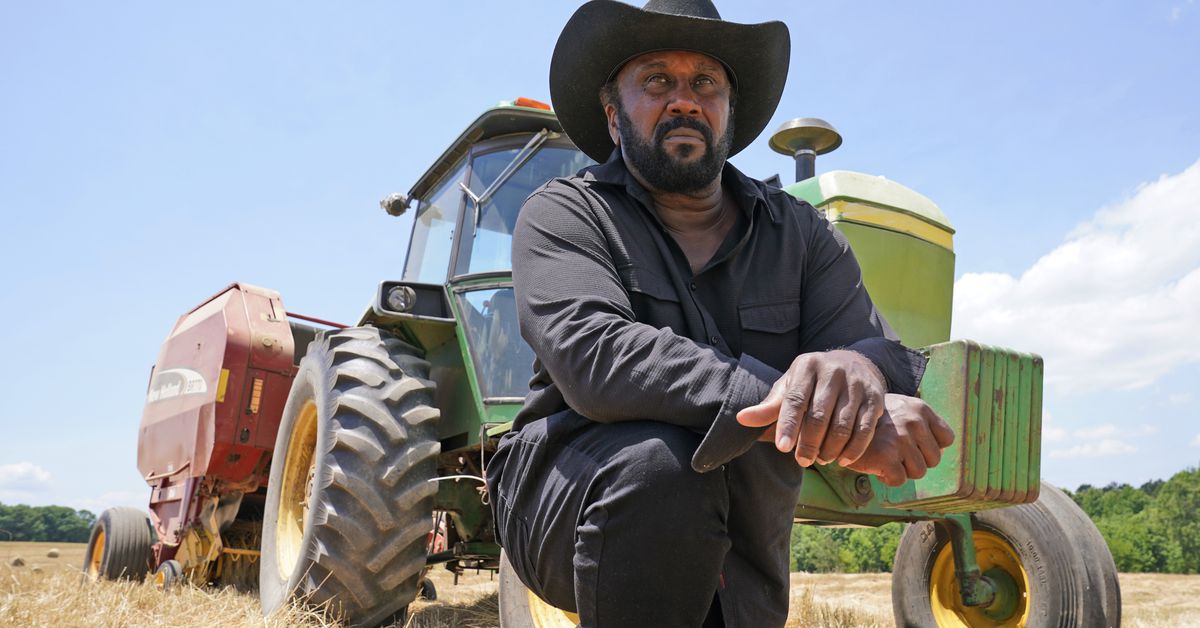
(No copyright infringement intended).
Utilizing the law, Boyd, Jr. filed lawsuits in federal courts of the South against the local agencies of the USDA; each one was dismissed. Gaining support from African-American leaders including Congresswoman Maxine Waters (CA-D), in 1995, he founded the National Black Farmers Association (NBFA). With this non-profit organization, John Boyd, Jr. guided members in bringing their plight as African-Americans in agriculture to the national light. In 1996, he led sixty farmers to Washington, D.C. where listed in their protest was the decades-long chicanery sanctioned by the United States Department of Agriculture. A meeting was soon held between the NBFA and the U.S. Secretary of Agriculture, Daniel Glickman. On the agenda were calls for monies to compensate the loans denied due to racism, termination of farm foreclosures and return of foreclosed farmlands that had been confiscated.
The NBFA also sought to have the statute of limitations removed from the federal lawsuits that been applied by African-American farmers. The reason for this is that in many instances, the opportunity for them to attain justice had expired. Fighting for two years, Congress agreed and the statute of limitations was removed. At the NBFA website, Boyd, Jr. said, “We had passed a law that not only protected Black farmers but Hispanic, female and Native American too … I thought everything was done – and that my work was done. But that was just the beginning.”
In 1999, the National Black Farmers Association experienced a major victory when a landmark decision was decided in its favor. The USDA agreed to pay $50,000 to every Black farmer named in the class action lawsuit. However, the federal agency was not required to provide notice of the settlement. More than 86,000 eligible Black farmers, greater than 85% of those named, never even knew they had an opportunity to gain financial redress.
Boyd, Jr. was now charged with a new objective to have those purposely-omitted be allowed to state their claims. Armed with new legislation, the 2008 Farm Bill, drafted by Congressman and future U.S. President Barack H. Obama (IL-D), John Boyd. Jr, rode his wagon 280 miles from Mecklenburg, Virginia to Washington, D.C. Driving his two mules, Justice and 40 Acres, he purposely undertook this arduous mode to bring attention to the plight of Black farmers … and he did just that. Boyd, Jr. immediately drew national attention from new supporters and news media. At the NBFA website, he discussed, “I knew I couldn’t bring my farm to Washington, but I also knew that I could still make people see. I just wanted to spark interest in our struggle and get people to ask the right questions.”
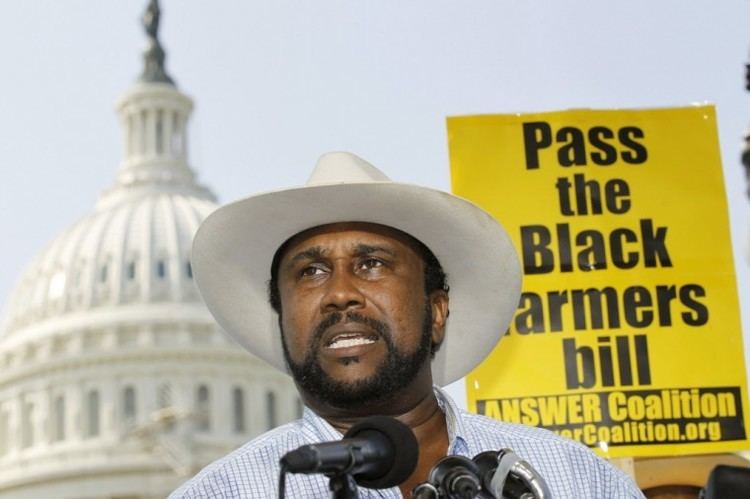
(No copyright infringement intended).
By this point, Boyd had been working closely on a national level with experts and leaders in the agricultural industry, business, farming organizations and government sector. He served as a co-chair on the Policy Committee on Agriculture and Forestry by Governor Tim Kaine (VA-D) and a member of the Virginia Tobacco Indemnification and Community Revitalization Commission under Governor Jim Gilmore (VA-R). In 2000, President Bill Clinton appointed John Boyd, Jr. to serve in his Cabinet’s tobacco commission.
A staunch supporter of Obama, he organized rallies and spoke at events throughout the South, including his home state of Virginia, Alabama, Florida, Georgia and South Carolina. Boyd’s efforts and contributions proved to be successful as Barack H. Obama became the first African American president of the United States!
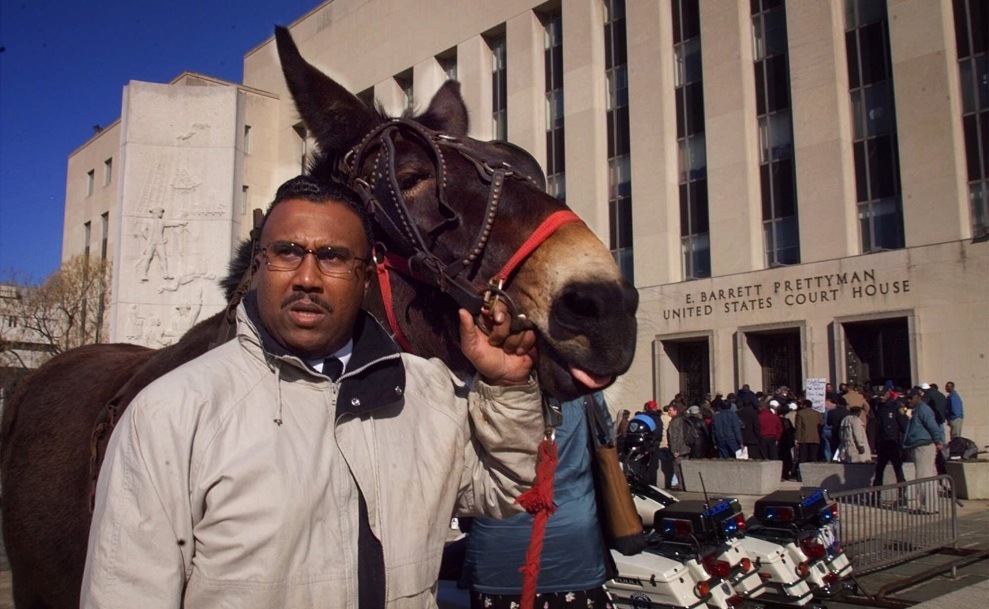
(No copyright infringement intended).
The 2008 Farm Bill brought the USDA’s discrimination against Black farmers back to court. Initially, the NBFA represented more than 800 farmers. However, it was clear, as per the Boyd, Jr. website, that “more funds are needed to fully address the literally tens of thousands of Black farmers who suffered discrimination at the hands of their own government.”
Although this new bill eventually passed, there was no authorization for funding the settlement. It would return to Congress and the final bill finally passed, on its 12th attempt, in 2010. Signed by President Obama, this bill provided a $1.25 billion dollars as the settlement amount. However, Congress never placed the monies in the budget.
Boyd, Jr. has been featured in numerous segments of national networks such as ABC, CBS and CNN, having been interviewed on esteemed shows such as 60 Minutes and Nightline. He has also been profiled in prominent publications, such as Ebony and JET, geared to African-American audiences. As the founder and president of the National Black Farmers Association, John Boyd, Jr. has been given accolades including being named a 2016 Honoree for the Leadership Award of the prestigious James Beard Foundation.
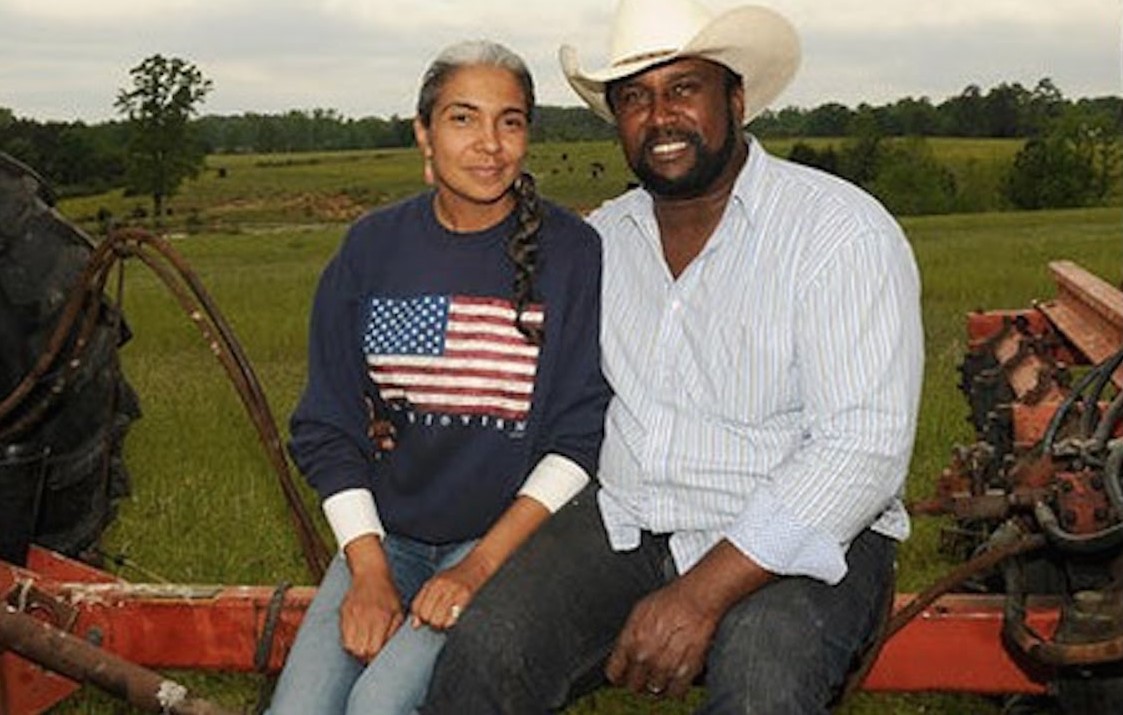
(No copyright infringement intended).
Boyd, Jr. continues to advocate for farmers, especially African-American farmers. The National Black Farmers Association boasts more than 110,00 members throughout America. Among its mission is to pass on to the next generation the importance of agriculture and farming.
Descending from four lines of Blacks who farm, he knows all too well the negatives that confront them. There are stigmas surrounding the historical legacy of slavery and sharecropping as well as health risks, including diabetes, obesity and stroke, associated with the diet and preparation of foods that many African-Americans consume.
In the All Things Considered interview, John Boyd, Jr. remained determined and hopeful, advising, “I think it’s a part of, a great part of history. I don’t care how many generations you go back, you’re only one or two generations away from somebody’s farm. We all came from the farm … If we had more Black people growing healthy foods – not as a mega-farmer but farming right in their backyard. Growing string beans, onions, all of the vegetables. If you were growing these things and eating more healthy foods, we wouldn’t have some of the illnesses that plague us. I think if we got reconnected with the farm, everything would be better. I would like to see our people go back to land ownership – get back to communities where we came from and really start doing some positive things.”
“What kept me going was the faces of all the people I met in the South. Some of these farmers had never left their county in their life … I knew that they would never see justice.”
~ John Boyd, Jr.
For greater enlightenment...
-
John Boyd of National Black Farmers Association on National TV 3.28.10

-
2016 Leadership Award Honoree: John Boyd Jr.

-
2016 JBF Leadership Awards: John Boyd Jr's Acceptance Speech

-
Our Members Are Struggling: National Black Farmers Assoc. President

-
Dr. John Boyd, President of National Black Farmers Association, on BAM-FX

-
Sen. Graham should apologize for ‘reparations’ remark, says head of Black farmers association

-
COVID relief plan includes aid for Black and minority farmers

-
National Black Farmers Pres. on bills to increase aid/fairness for minority farmers - Dr. John Boyd

-
CNN Fredricka Whitfield with John Boyd Discussing Emergency Relief for Black Farmers

-
Push for equality

